8 Best Mulches for Vegetable Gardens
-
Kristin Hitchcock
- Last updated:
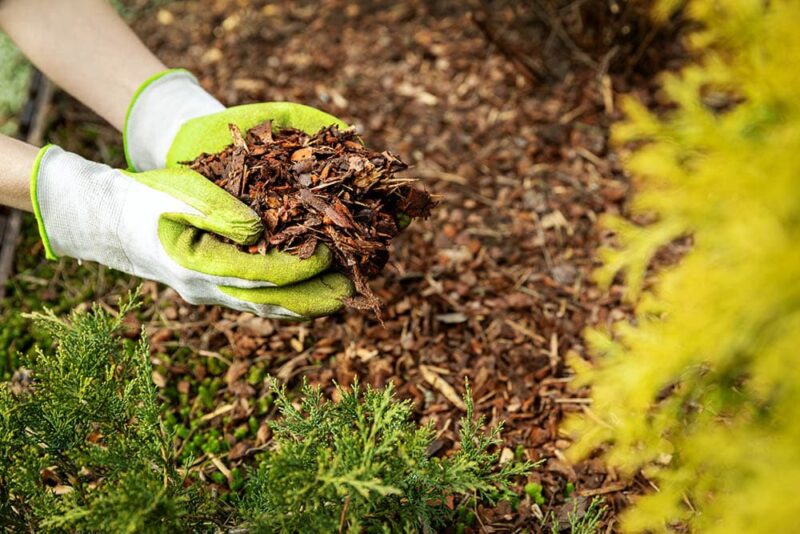
While it is often overlooked, mulch can be vital for the healthy growth of a vegetable garden. For instance, it prevents weeds from sprouting, helps the soil maintain moisture, and regulates the soil temperature. While you don’t need mulch for your veggie garden, it can be extremely helpful.
Luckily, there are many types of much out there. Often, people think of chipped wood mulch. However, this often isn’t the best type of mulch for a vegetable garden, especially since many of these are treated with chemicals and dyes. Instead, we recommend using organic (and often cheaper) natural mulch.
Here are some of our favorite options.
The 8 Best Mulches for Vegetable Gardens
1. Grass Clippings
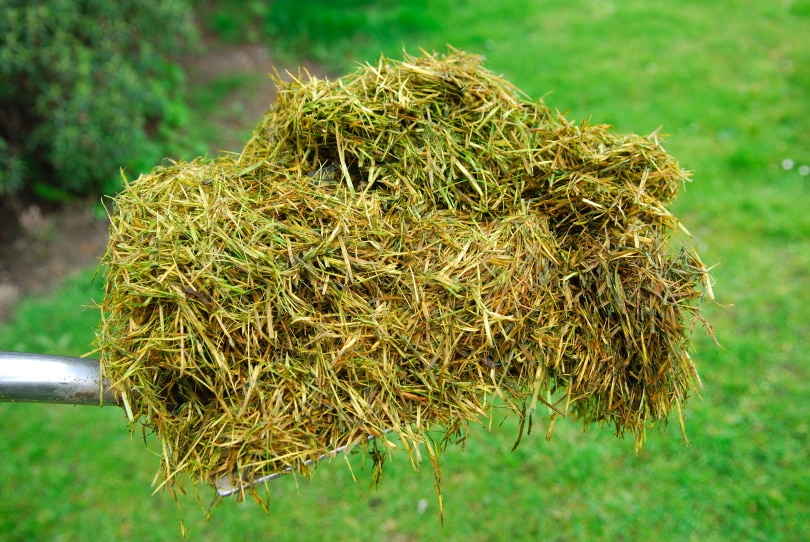
If you mow your lawn, you probably have grass clippings lying around. These clippings can be used as an effective mulch, and they are completely free. Not only do they prevent weeds, but they also add nutrients back to the soil. However, because grass clippings decay relatively quickly, you’ll have to add them to your garden regularly. While this does require a bit of work, it shouldn’t cost you any extra money.
We recommend only using dry clipping. Wet clippings tend to remain in clumps, making them difficult to spread around. Wet clippings can also form a bit of a mat and prevent water from entering the soil when dry.
Of course, don’t use any clippings that were treated with chemicals.
- Inexpensive
- Easy to find
- Decomposes quickly
- Can be folded into the soil if needed
- Needs to be added regularly
- Can look messy
- Requires regular fluffing
2. Compost
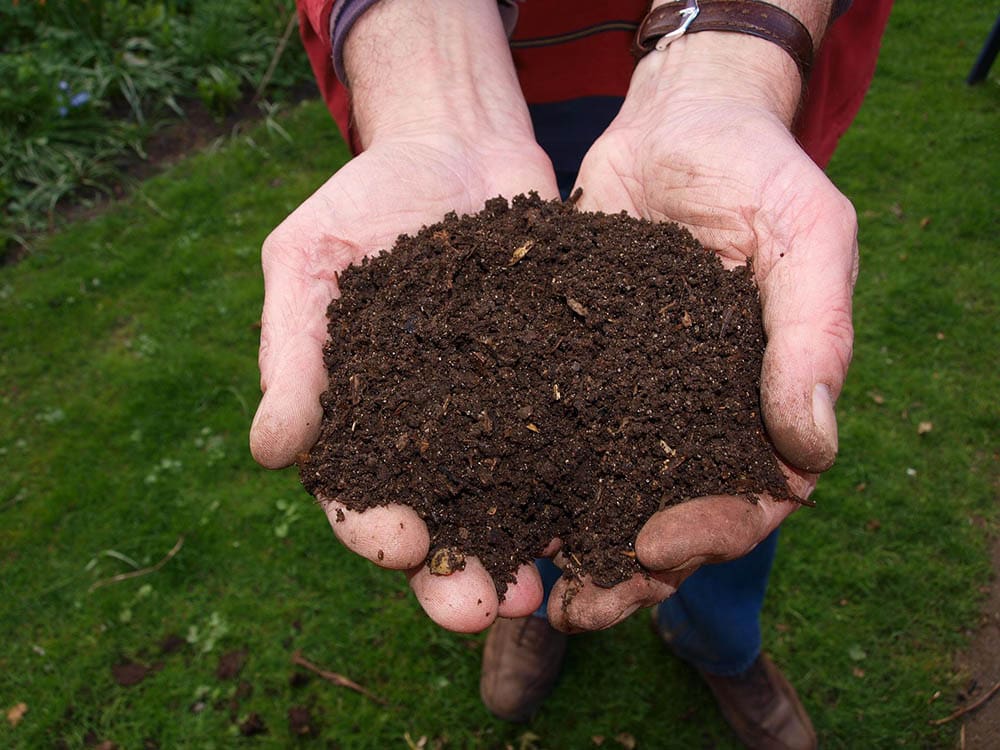
If you have compost available, add it to your garden! It is hard to find a better mulch than compost. This material prevents weeds, keeps the roots insulated, adds structure, and improves soil quality. It does everything you might want a compost to do.
The easiest way to get compost is to make it yourself. You can use grass clippings and a range of organic materials to create your compost regularly. Then, spread it on your veggies to add nutrients and prevent weeds.
You can also purchase compost from many garden suppliers. However, this can get a bit expensive over time (though it does require less work).
- Insulates roots
- Adds nutrients to the soil
- Easy to make
- Breaks down quickly
- Not great at suppressing weeds
- Can be expensive to purchase
- May attract pests
3. Black Plastic

If you’re most concerned with preventing weeds, you may consider adding black plastic to your garden. This is done by spreading the plastic over your garden and adding holes for your plants. No sunlight reaches the soil, so weeds cannot grow. It may also help with water retention since water won’t evaporate.
Heat-loving veggies do best under this plastic. However, others may not. Plus, black plastic can break down quickly in the sunlight. You’ll have to add new plastic to your garden regularly, and it usually doesn’t last longer than a growing season.
New nutrients also can’t get added to the soil via that plastic (and you have to worry about microplastics, too).
- Suppresses weeds
- Easy to install
- Keeps soil extra warm
- Not environmentally friendly
- Can get too hot for some plants
- Requires regular replacing
- Not very aesthetically pleasing
4. Leaves
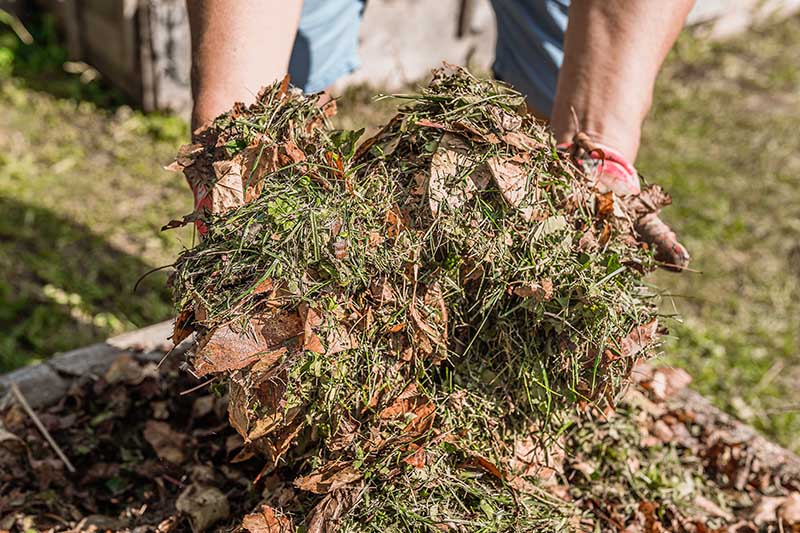
In the fall, you may have quite a few leaves lying around. You can use these as mulch. However, fresh fallen leaves tend to blow around and so it is best to mulch them and wait for them to decompose partially. Then, they work well at controlling weeds and can add plenty of nutrients to your soil. These leaves can also add structure to the soil and increase water retention.
As the leaves decompose, you can add more or choose a different mulch. You may find yourself using different natural mulches as the season changes.
Of course, you should avoid adding any infected leaves. You don’t want leaves from a diseased tree infecting your garden. Also, don’t add black walnut tree leaves, as they contain chemicals that can affect many plants.
- Free
- Easy to find
- Decomposes to increase soil quality
- Can help adjust the pH
- Dry leaves often blow away
- Can be a fire hazard
5. Straw
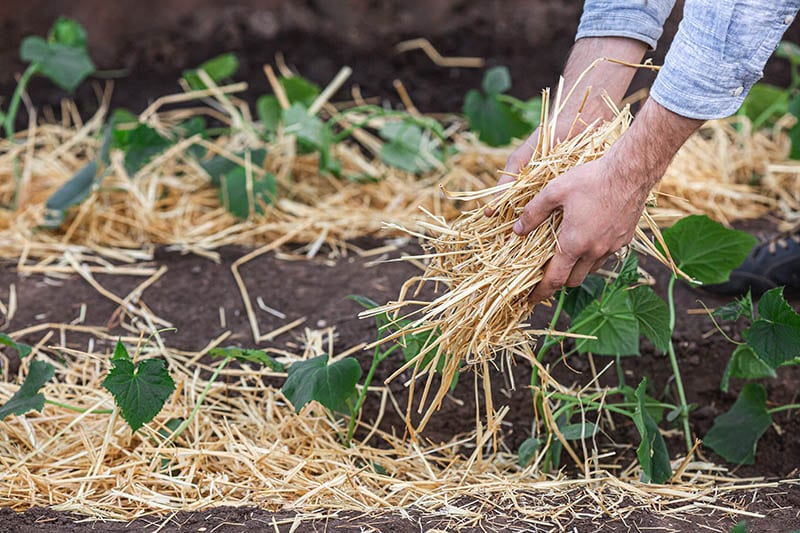
Straw is a common mulch in rural areas, where it is often very easy to find. Straw is particularly useful in the winter (which is lucky since it is readily available in the fall). It helps insulate the soil and retains moisture, much as dead grasses would naturally in the winter.
However, this isn’t the most beautiful option out there. If you’re in an area where straw is readily available, it makes perfect sense as mulch, in any case. While most gardeners use it in the winter, you can also use it in the spring.
- Improves water retention
- Easy to find
- Insulates soil
- Inexpensive
- Can blow away easily
- May attract rodents
- Doesn’t provide many nutrients
6. Cocoa Hulls
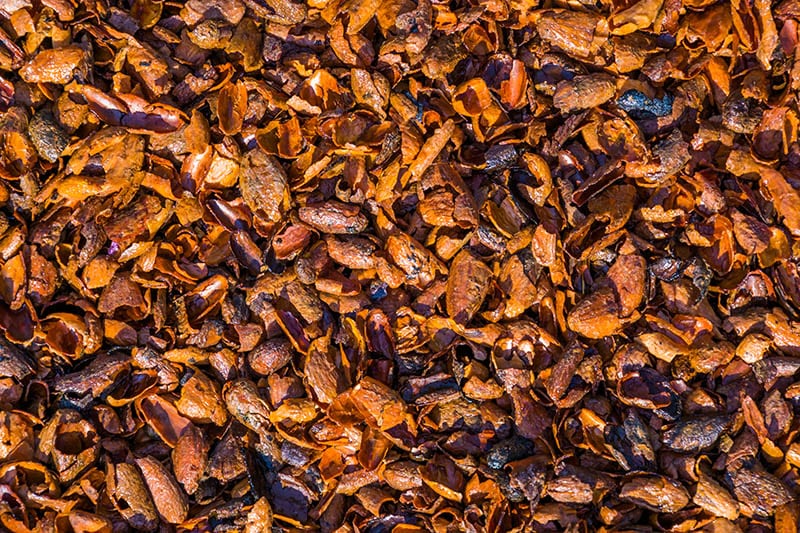
Cocoa hulls are a by-product of the cocoa bean trade. For a long time, they were discarded or used locally. However, recently, they have become popular imports for mulching. They do make a great mulch in many circumstances. They are even thought to attract earthworms, which is good for gardens. They decompose slowly, adding structure to the soil.
Plus, they look much nicer than the other options on this list.
However, these hulls contain theobromine, which is toxic to many animals. Therefore, they may not be a great option if you have pets. Plus, they can be expensive as you often have to get them imported.
- Aesthetic
- Long-lasting
- Easy to apply
- Suppresses weeds
- Adds soil structure
- Hard to find
- Expensive
- Toxic to many animals
- Molds easily
7. Newspaper
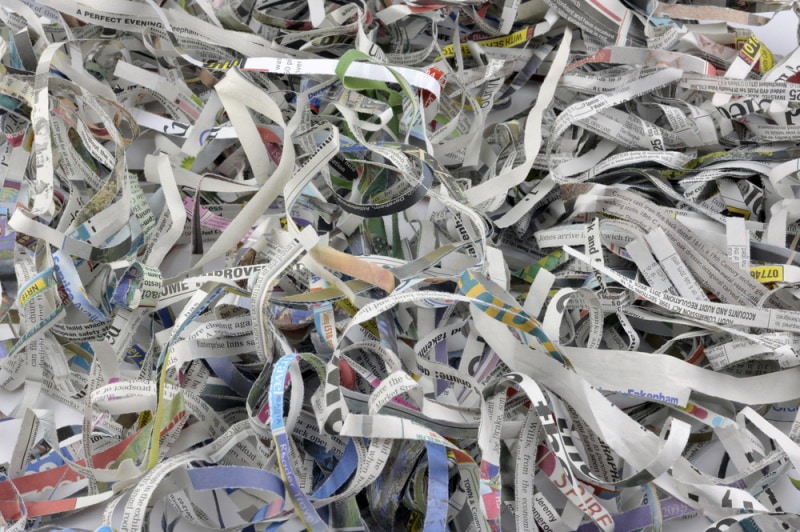
Not many people get the newspaper anymore. However, if you do, we recommend saving it for your garden. Adding newspaper across your whole garden can be challenging. It often takes quite a few newspapers to cover a substantial area. However, you may be able to find newspapers for free that would otherwise be thrown away. Check around locally. You can also use just some newspaper in your garden, adding other mulch to fill in the gaps.
Newspaper is an amazing weed suppressant. Applying them to your garden is also easy. Soak the sheets with water as you put them in your garden, causing them to stick together. Then, add a different mulch on top to keep them in place. The newspapers will decay slowly, but they will reduce compaction and weeds before they do so.
Once it decomposes, it does add nutrients to the soil. However, the decomposing newspaper can steal nitrogen from the soil, so be sure your soil has enough before adding more newspapers.
- Widely available
- Suppresses weeds
- Free (usually)
- Degrades
- Attracts rodents
- Not very attractive
- May provide too much cover
- Takes nitrogen from the soil
8. Pine Needles
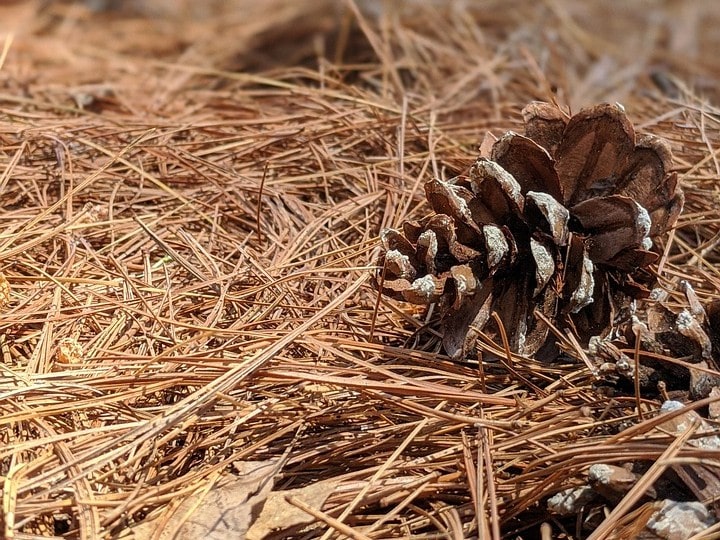
Like leaves, you can use pine needles as mulch. There needs to be a slight understanding involving the pH of pine needles. While pine needles on the tree are acidic, they lose this acidity when they turn brown. Therefore, brown pine needles are completely fine (and even fresh ones will neutralize as they decompose).
Pine needles are better than leaves because they interlock, allowing them to stay in place. They don’t blow away quite as much. They also resist compaction, allowing the soil to stay porous.
On the other hand, these needles can be a fire hazard. Therefore, they aren’t a great option where fires are common.
- Lasts for years
- Free
- Smells nice
- Aesthetic
- Can be a fire hazard
Conclusion
There are tons of natural mulch options that make a great choice for veggies. Many of these are very inexpensive or free. For instance, leaves, pine needles, and grass clippings are all readily available. Even if you don’t have them, one of your neighbors probably does (and likely wouldn’t mind parting with them).
You don’t always have to use the same mulch for your garden. Instead, you can switch it up as different mulches become available to you. You probably aren’t going to have grass clippings in the winter, but leaves may be readily available.
See also:
- What are the Best Organic Mulches? 7 Great Options
- What Are the Best Mulches for Asparagus? 7 Great Options
Featured Image Credit: ronstik, Shutterstock
Contents
